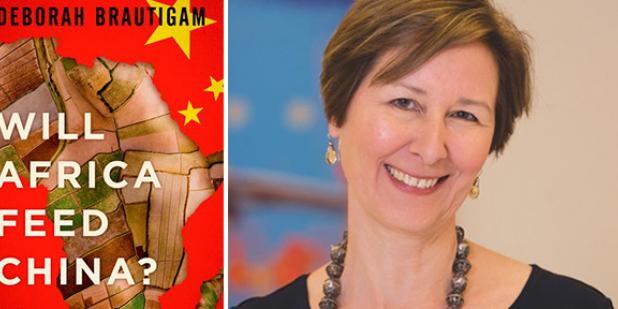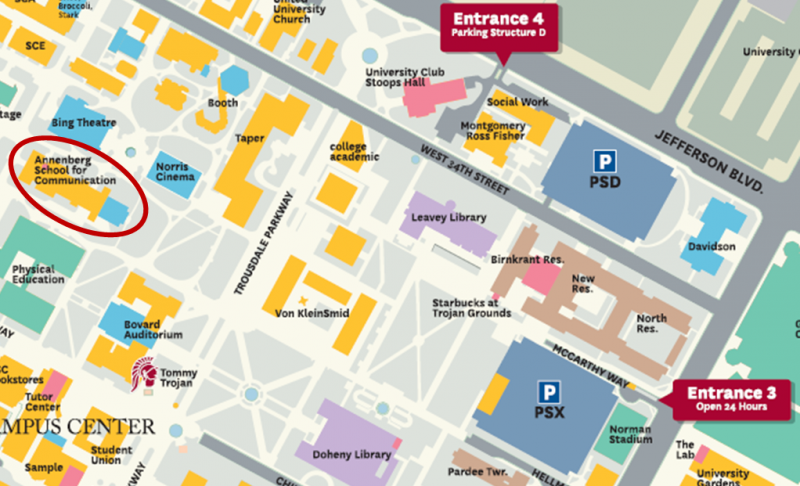Join us for a free one-day workshop for educators at the Japanese American National Museum, hosted by the USC U.S.-China Institute and the National Consortium for Teaching about Asia. This workshop will include a guided tour of the beloved exhibition Common Ground: The Heart of Community, slated to close permanently in January 2025. Following the tour, learn strategies for engaging students in the primary source artifacts, images, and documents found in JANM’s vast collection and discover classroom-ready resources to support teaching and learning about the Japanese American experience.
Will Africa Feed China?
The USC U.S.-China Institute presents a book talk by Deborah Brautigam, one of the world’s leading experts on China and Africa. "Will Africa Feed China?" explores China’s evolving global quest for food security and Africa’s possibilities for structural transformation.
Where

Click here to watch the presentation.
Is China building a new empire in rural Africa? Few development topics are as controversial and emotionally charged as the belief that the Chinese government is aggressively buying up huge tracts of prime African land to grow food to ship back to China. In Will Africa Feed China? Deborah Bräutigam, one of the world’s leading experts on China and Africa, probes the myths and realities behind the media headlines.
Chinese farming investments are in fact surprisingly limited, and land acquisitions modest. Defying expectations, China actually exports more food to Africa than it imports. Why is the reality of Chinese investment so different from the headlines? Is this picture likely to change? What role will China play as rural Africa moves from subsistence to commercial agriculture, and China builds a portfolio of tools to allow its agribusiness firms to “go global”?
Will Africa Feed China? answers these questions as it sheds new light on China’s evolving global quest for food security and Africa’s possibilities for structural transformation.
Presenter: Deborah Bräutigam is the Bernard L. Schwartz Professor of Political Economy, Director of the International Development Program, and Director of the China Africa Research Initiative at Johns Hopkins University’s School of Advanced International Studies. Her most recent books are The Dragon’s Gift: The Real Story of China in Africa (2010) and Will Africa Feed China? (2015). Before joining SAIS in 2012, she taught at Columbia University and American University. Bräutigam’s teaching and research focus on international development strategies, governance, and foreign aid. Journalists, government agencies, and international organizations frequently turn to her for analysis and advice.
 Discussant: Shaun Breslin is professor of politics and international studies at the University of Warwick. His books include China and the Global Political Economy (2007), Mao (2000), and China in the 1980s: Centre-Province Relations in a Reforming Socialist State (1996). He’s also the editor of a number of books and has written recently on Chinese ideas on human security. He is frequently cited in the press and among his op-eds is one on Chinese leader Xi Jinping’s 2015 visit to the United States.
Discussant: Shaun Breslin is professor of politics and international studies at the University of Warwick. His books include China and the Global Political Economy (2007), Mao (2000), and China in the 1980s: Centre-Province Relations in a Reforming Socialist State (1996). He’s also the editor of a number of books and has written recently on Chinese ideas on human security. He is frequently cited in the press and among his op-eds is one on Chinese leader Xi Jinping’s 2015 visit to the United States.
Selected Reviews:
"Engagingly written with scholarly rigour... an essential read for those concerned with China's growing presence in Africa, the charged debate on 'land grabbing' and the future of Africa's agricultural development." --China Dialogue
"Debates about China's involvement in Africa, particularly around land and agriculture, are frequently ill-informed. This book challenges the myths and explores the realities on the ground through a series of fascinating cases. Anyone interested in the global politics of land and food, and the role of China and Africa, should read this highly informative and engagingly-written book." --Ian Scoones, Professorial Fellow, Institute of Development Studies, University of Sussex
"Will Africa Feed China? is a delight. It shows investigative social science at its best as it explores - with simplicity and clarity-the truth behind widespread claims of China's rapidly expanding footprint all over Africa. It should be read by anyone who wishes to go behind the headlines about the world order undergoing transformative change as China surges and the United States loses ground." --Robert H. Wade, Professor, Department of International Development, London School of Economics
"A sequel to her highly acclaimed book, The Dragon's Gift, Deborah Brautigam, once again based on penetrating field studies, provides a fascinating account of the facts of Chinese agricultural investment in Africa to dispel many widespread false accusations about China's intentions and activities in African agriculture. This is a timely book for anyone concerning about the destiny of African people and China's role in African development." --Justin Yifu Lin, Professor and Honorary Dean, National School of Development, Peking University, and Former Chief Economist, World Bank
"Engagingly written with scholarly rigourEL an essential read for those concerned with China's growing presence in Africa, the charged debate on 'land grabbing' and the future of Africa's agricultural development." - Financial Times
Deborah Brautigam spoke at USC on January 21, 2010 about her previous book, The Dragon's Gift. Click here to watch the presentation.

Featured Articles
Please join us for the Grad Mixer! Hosted by USC Annenberg Office of International Affairs, Enjoy food, drink and conversation with fellow students across USC Annenberg. Graduate students from any field are welcome to join, so it is a great opportunity to meet fellow students with IR/foreign policy-related research topics and interests.
RSVP link: https://forms.gle/1zer188RE9dCS6Ho6
Events
Hosted by USC Annenberg Office of International Affairs, enjoy food, drink and conversation with fellow international students.
Join us for an in-person conversation on Thursday, November 7th at 4pm with author David M. Lampton as he discusses his new book, Living U.S.-China Relations: From Cold War to Cold War. The book examines the history of U.S.-China relations across eight U.S. presidential administrations.




